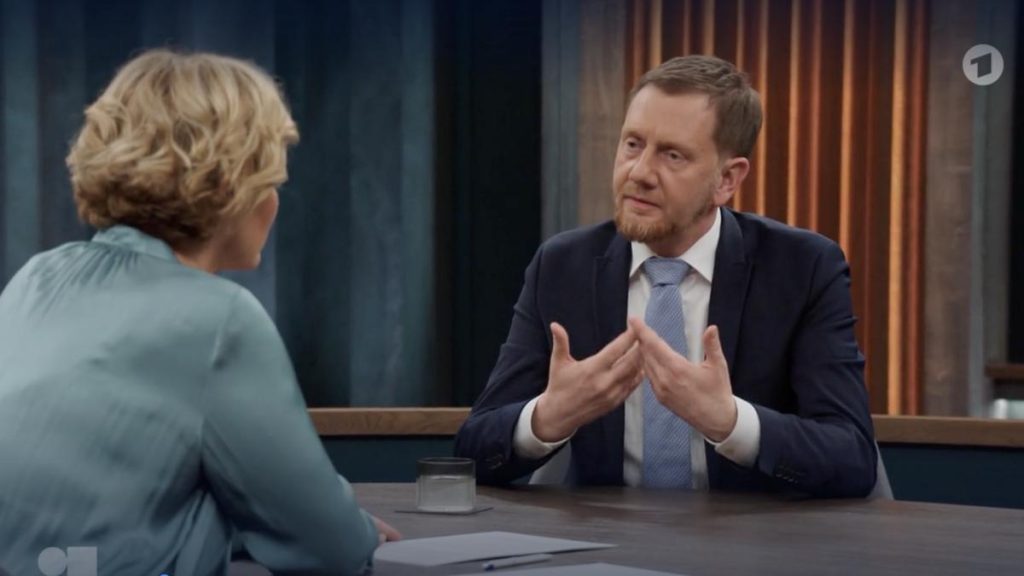The CDU in Saxony is facing the possibility of being left alone in the upcoming election, potentially having to work with the AfD and BSW in the state parliament. This raises questions for incumbent Minister President Michael Kretschmer on how to deal with the populist opposition. In a recent interview, Kretschmer emphasized his lifelong fight against right-wing extremism and rejected accusations of ignoring the issue. While most people in Saxony support democracy and openness, Kretschmer acknowledged that more needs to be done to address the root causes driving individuals towards extremist ideologies. He criticized the current government for failing to engage in meaningful dialogue with the population on key issues such as energy policy and agriculture subsidies, which he believes contributes to the rise of protest parties.
Journalist Elisabeth Niejahr highlighted the need for stronger action against the increasing radicalization observed in farmers’ protests. She praised Kretschmer’s dialogue-based approach but also criticized the lack of political education provided by the CDU in Saxony, especially among young people who are increasingly drawn to the AfD. Historian Ilko-Sascha Kowalczuk accused Kretschmer of downplaying fascism in Saxony and adopting the anti-democratic rhetoric of the AfD and other conservative groups. Kretschmer vehemently denied these claims, asserting that promoting democracy has always been a top priority for the CDU in Saxony. He also defended his stance on Russia, emphasizing the need for diplomacy to address international conflicts instead of military intervention.
Kretschmer’s proposal to freeze the conflict in Ukraine was met with criticism from Kowalczuk, who argued that Western countries should actively prevent the destruction of freedom and democracy by Russia. The historian accused the CDU of being too lenient towards certain political figures, such as Sahra Wagenknecht, which he believes has hindered coalition-building with the Left party. Kretschmer dismissed these accusations as media constructs, stating that he has never held discussions with certain individuals from the BSW. Despite the tensions and differing perspectives on diplomatic approaches, Kretschmer remains committed to advocating for democracy and addressing the challenges faced by Saxony.
Overall, the discussions highlighted the growing polarization in German politics, particularly in Saxony, where the rise of extremist views poses a threat to democratic values. While Kretschmer emphasized the importance of dialogue and democratic engagement, critics pointed out the need for more proactive measures to combat radicalization and strengthen political education. The ongoing debate surrounding foreign policy and coalition-building reflects broader divisions within German society, raising questions about the future of governance and democracy in the country. As the election approaches, the CDU in Saxony faces an uphill battle against populist forces, prompting a reassessment of its strategies and priorities in light of evolving political dynamics.















